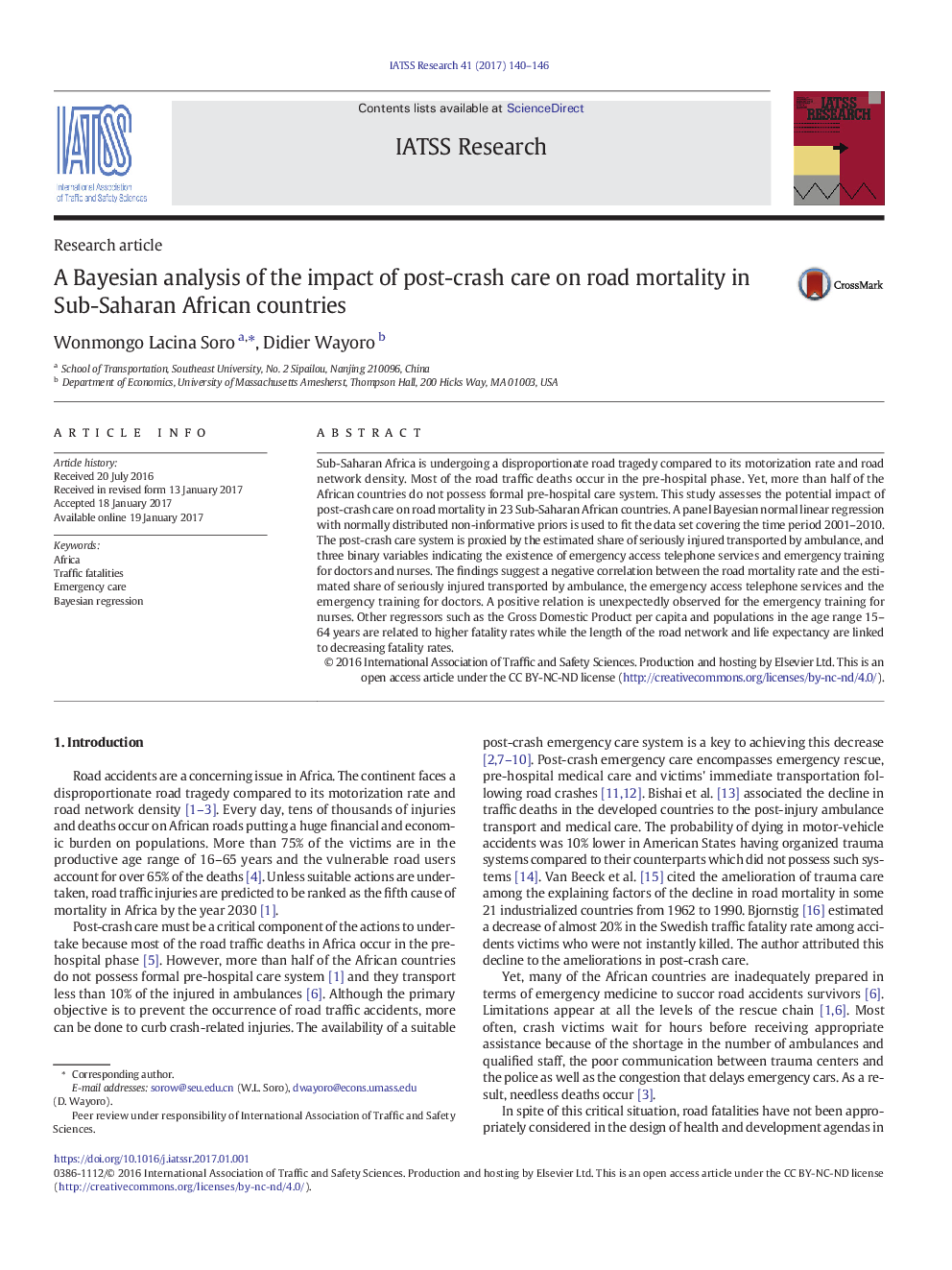| Article ID | Journal | Published Year | Pages | File Type |
|---|---|---|---|---|
| 5124687 | IATSS Research | 2017 | 7 Pages |
â¢Emergency training for doctors, and emergency services for telephones and ambulances are beneficial to traffic safety.â¢Emergency training for nurses is unexpectedly correlated with higher fatality rates.â¢Improvements in medical care proxied by the Life expectancy are connected to lower fatality rates.
Sub-Saharan Africa is undergoing a disproportionate road tragedy compared to its motorization rate and road network density. Most of the road traffic deaths occur in the pre-hospital phase. Yet, more than half of the African countries do not possess formal pre-hospital care system. This study assesses the potential impact of post-crash care on road mortality in 23 Sub-Saharan African countries. A panel Bayesian normal linear regression with normally distributed non-informative priors is used to fit the data set covering the time period 2001-2010. The post-crash care system is proxied by the estimated share of seriously injured transported by ambulance, and three binary variables indicating the existence of emergency access telephone services and emergency training for doctors and nurses. The findings suggest a negative correlation between the road mortality rate and the estimated share of seriously injured transported by ambulance, the emergency access telephone services and the emergency training for doctors. A positive relation is unexpectedly observed for the emergency training for nurses. Other regressors such as the Gross Domestic Product per capita and populations in the age range 15-64Â years are related to higher fatality rates while the length of the road network and life expectancy are linked to decreasing fatality rates.
